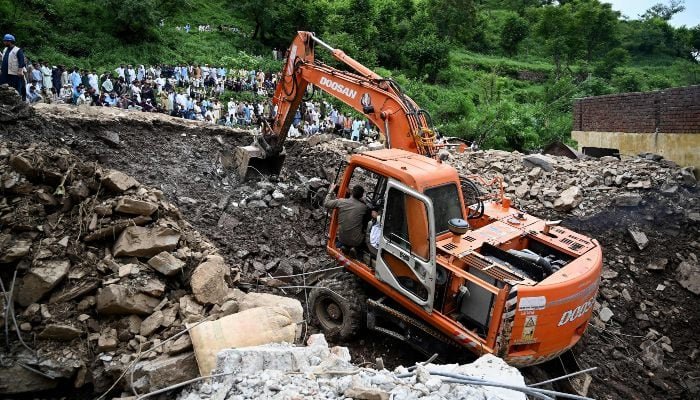The United Kingdom has announced a humanitarian aid package of £1.33 million to support Pakistan amid the devastating impacts of the 2025 monsoon season. This timely assistance is set to benefit over 223,000 people across seven flood-affected districts in Punjab, Gilgit-Baltistan, and Khyber Pakhtunkhwa.
The aid covers a wide spectrum of emergency and recovery interventions. Emergency food rations, search and rescue deployments, mobile medical camps, and the rehabilitation of drinking water systems and irrigation channels are among the key components of the response. Additionally, the support includes provisions for livelihood and agricultural assistance to help affected communities rebuild.
A core element of the initiative is the training of 2,400 community volunteers across vulnerable districts in search and rescue operations. Notably, 25 of these volunteers from Charsadda have joined Rescue 1122 in Buner, playing a critical role in locating and evacuating individuals trapped under debris.
Mobile medical camps are being established in locations where local clinics sustained damage, ensuring continuous access to essential healthcare. The aid package also includes distributing non-food items, shelter materials, and dignity kits for women, highlighting a focus on vulnerable populations.
Coordination on the ground is strengthened by support from the United Nations Office for the Coordination of Humanitarian Affairs (UN OCHA). UN OCHA district coordinators in Swat and Buner are working alongside humanitarian organizations to ensure assistance is delivered efficiently and effectively.
Beyond immediate relief, the UK is investing in Pakistan’s long-term disaster resilience through its Subnational Governance programme, implemented by UNDP, in Sindh. This initiative helped establish Disaster Risk Reduction Wings at provincial and district levels in pilot districts—Thatta, Naushero Feroz, and Jamshoro.
A disaster preparedness dashboard has also been developed and handed over to Sindh’s Provincial Disaster Management Authority. It integrates crucial district-level data—such as shelter locations, medical supply inventories, and emergency equipment—for quicker, more coordinated emergency responses in the future.
British High Commissioner Jane Marriott reaffirmed the UK’s ongoing partnership with Pakistan, stating: “Through UK-funded programmes, vital assistance is reaching communities affected by flooding and landslides. The UK remains committed to strengthening Pakistan’s disaster response and resilience.”
In a country reeling from climate-induced crises, this dual approach—providing immediate relief while enhancing disaster preparedness—underscores the importance of resilience and coordinated action in protecting lives and livelihoods.






